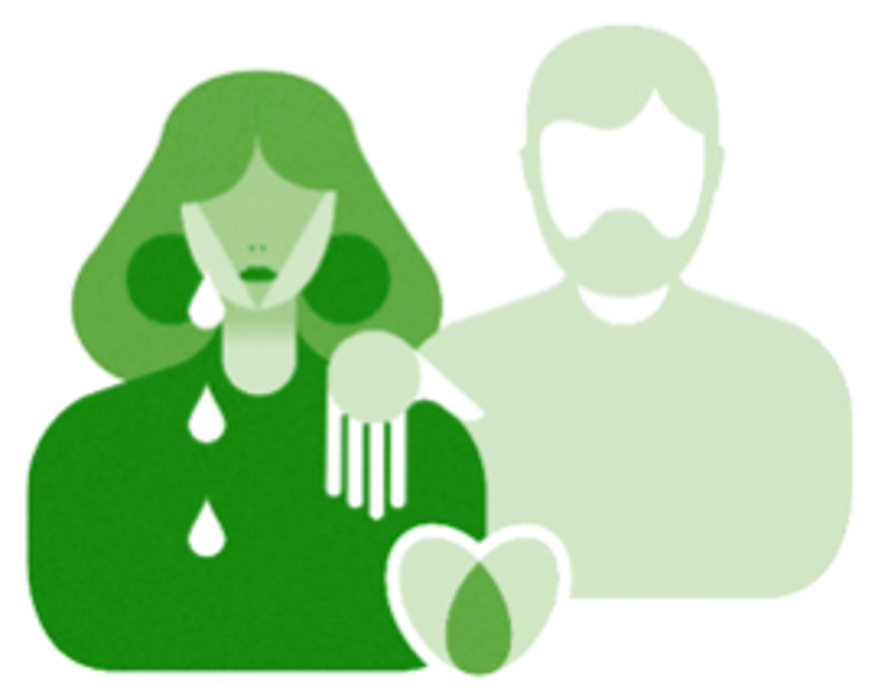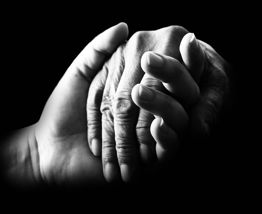Enrol in an online course today for flexible, self-paced learning—no fixed schedule required. Plus, enjoy lifetime access to course materials for convenient revisiting.
Pillars of Strength 1/8: Relationship with the Person Who Has Died

I have written this series of blogs, about the work we need to do to help us grieve and survive healthily, in the hope that you will find it helpful with your clients. The concept came to my mind because so many clients told me they felt as if there was a hole inside them. I thought the image of architectural pillars, which they could develop for themselves and would help hold them when they felt so blown up, was a useful one.
These basic guidelines are ways to think about what helps us, at such a difficult time in our life, rather than a specific set of rules. Our uniqueness makes the writing of a definitive list impossible. Grief requires the commitment of regularly doing things that help us, physically and emotionally. This may seem impossible in the first weeks and months of grief for some, while for others it will be a welcome focus.
I have developed the idea of ‘pillars of strength’, the key structures that support us, and enable us to rebuild our life. It requires work to build the pillars (they don’t just appear out of the blue) and commitment to keep going. They also work as an integrated whole. We can’t just focus on one pillar, they all require our attention and time, and there is a multiplier effect – working on all the pillars increases their strength.
Pillar 1: Relationship with the Person Who Has Died
At the centre of any grieving process is the psychological adjustment to face the reality of the death of this person who has died. It is a complicated process because we are forced to face a reality that we don’t want to be true.
The biggest indicator of how much pain we are in is the quality of the relationship, and how much we loved the person who died. The more important they were in our life, the more we loved them, the more we will miss them. The contradiction here is that having had a difficult relationship with a significant person in our life, who has died, can make the grieving process harder, because there are likely to be regrets, and no longer the opportunity to put things right.
In grief, there is not a hierarchy of one bereavement being worse than another. When someone dies, it is a unique experience, and the relationship with that person is consequently entirely unique. Yet there are ways of looking at the relationship that can help us begin to unravel the complexity and the meaning of this loss to us. We can explore the meaning:
- of this particular person…
- at this particular time of our life…
- for us living in this particular community…
- in these particular circumstances
When we examine each of those aspects, we have the beginning of a narrative for ourselves, which helps clarify what is often inchoate and confused inside us.
In the past, the view was that when someone dies, we forget and move on. We know now that is not true. Although we have to come to terms with the fact of their death, the relationship with the person who has died – though radically altered – continues. We love them in absence, rather than presence. Some people may need to do this a great deal, others only occasionally or on special days like anniversaries. A central pillar to support our system is to:
Find ways of externalising that relationship
We may do this by:
- Wearing something that connects to them, like their watch, a name band or an article of their clothing like a scarf
- Visiting their grave
- Creating a memory box in which we put special objects like their glasses, or cards or pressed flowers
- Making a photograph album or writing to them in a journal or in the form of a letter
- Cooking their favourite recipe
- Posting online an image we know they’d have loved
There are multiple ways to do this. Finding an external expression for continuing this relationship through regular rituals is not only important but has been shown to reduce negative emotions and increase positive ones.
Over time, the regularity of these rituals may lessen, or your client may find their regularity is a stabilising force that enables them to bear the pain of the death.
Find out more about Julia’s work and writing at https://juliasamuel.co.uk/


















